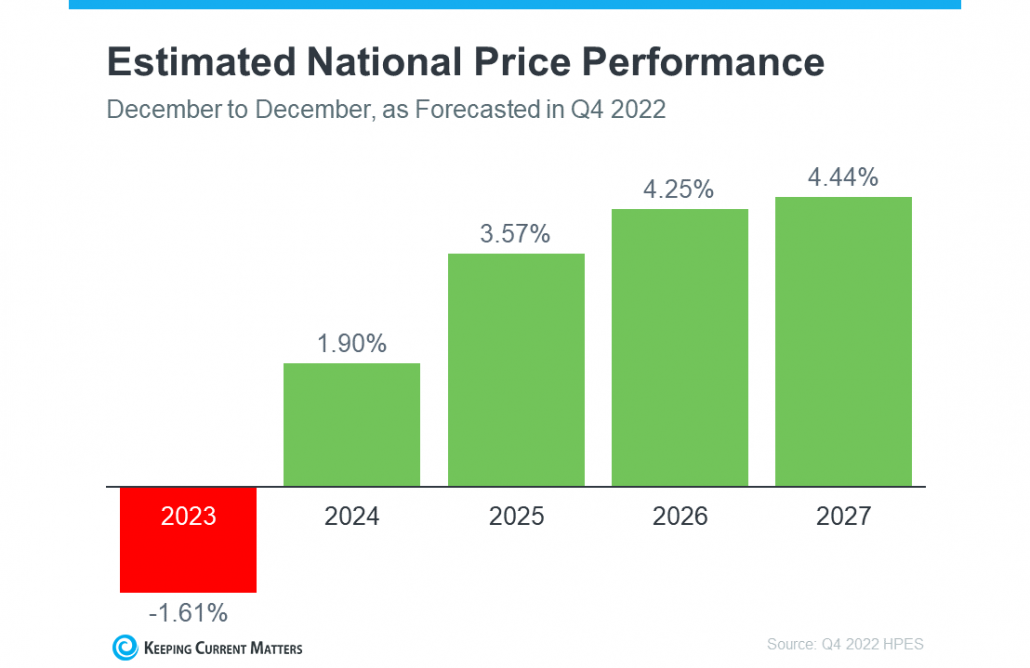The Biggest Questions Your Real Estate Clients Are Asking Today (And How to Answer Them)
With so many things happening with the economy and housing market, your clients will be coming to you with a lot of complicated questions. It’s your job as the market expert to answer them to the best of your ability, and to have the insights to support your reasoning.
By answering the biggest questions in today’s housing market, you’ll help your clients navigate a complicated market, prove your value and set yourself up for a successful year. We’ll cover common real estate questions and answers that you may get as an agent from buyers, sellers, and clients.
Frequently Asked Real Estate Questions from Sellers
1. Is now a good time to sell?
The answer to this question depends on the specific market conditions in the seller’s area. Generally speaking, the real estate market is highly competitive right now, which is good news for sellers.
The answer to this question may include some of the biggest reasons why it may be a good time to sell:
- Inventory is still low, with buyer demand high. If your home is priced right, it will sell quickly.
- In a competitive market, the seller has the upper hand. This can be advantageous when it comes to negotiating terms, repairs, moving dates and more.
Of course it’s critical to give sellers your professional opinion about the current market conditions where they live, and help them make an informed decision about when to sell their house.
2. How much is my house worth?
As an agent, you already know pricing your home appropriately from the start matters. Especially today, your asking price sends a message to potential buyers. When it comes to determining the value of a home, there are several factors that need to be considered, such as the location, size and layout, condition, and features of the property, as well as the current market conditions in the area (how’s the supply and demand?).
To get a more precise estimate of a home’s worth, agents like you can conduct a Professional Equity Assessment Report (PEAR) for the seller. An alternative to a competitive market analysis (CMA), a PEAR is a simple way for real estate agents to determine the cash value of a seller’s home. No guessing, no lengthy calls with the bank or a lender.
3. What are some things I need to do to get my house ready for sale?
From taking care of big repairs to staging your house, preparing a home for sale is a crucial step in any successful home selling process. You can tell sellers one that they’ll want anyone who walks through your house to have a great first impression.
Often the first step is to remove clutter and personal items from the house. You may even need to rent a storage unit if you have a lot of belongings. Remember that potential buyers want to imagine their things in the house and not get stuck on your knick-knacks. Other steps include getting a deep clean, neutralizing decor, removing signs of pets, amping up the curb appeal, and staging the home to highlight the home’s features.
4. Would it be wise for me to have a home inspection done before listing my house?
Yes! Ordering a home inspection before listing a house can be a smart and strategic move that can benefit the seller in the long run.
Explain to the seller that a home inspection provides you with important information about the condition of your home and any potential issues that need to be addressed. It’s always better to be proactive and consider getting ahead of any critical repairs or maintenance items before putting your house on the market. There are some downsides to keep in mind, such as the cost (average cost of a home inspection is $341 in the U.S.) and the fact that you may be legally required to disclose major problems to would-be buyers. However, getting a home inspection helps ensure that your house is in top condition and that you’re not surprised by what may need to be fixed or repaired down the line.
Assure the seller that you can help them determine where to focus their efforts and stand out in a shifting housing market.
5. How long do you think it will take to sell my house?
As of February 2023, homes spent an average 67 days on the market. The median number of days property listings spend on the market is calculated from list date to closing, pending, or off-market date.
The specific answer to this question depends on demand, features and attributes of the house, as well as the local market conditions within the area, among other factors. However, timeline ranges can be as short as a week or extend to 3-6 months and beyond.
Frequently Asked Real Estate Questions from Buyers
6. What’s the initial step in purchasing a home?
Explain to your buyer that the first step when buying a home is to get pre-approved for a mortgage, which helps determine how much money you can borrow to buy a home. The pre-approval process involves meeting with a lender or mortgage broker and providing them with your financial information, such as income, debts, and assets. The lender will then review your information and let you know how much they are willing to lend you and at what interest rate.
Getting pre-approved for a mortgage is important because it helps you determine your budget for buying a home and shows sellers that you are a serious buyer. Sometimes it’s even a requirement before you can look at luxury homes. Getting pre-approved can also help speed up the process once you find a home you want to make an offer on.
7. What are my options if my offer is turned down?
Let your buyer know that if an offer for a house is turned down, you have several options:
- Boost your offer: If the seller rejected your offer because they believe it is too low, you may consider increasing your offer.
- Ask for a counteroffer: The seller may not want to accept your offer but may be willing to negotiate by providing a counteroffer. This gives you an opportunity to revise your offer or negotiate other terms, such as closing date or repairs.
- Keep searching: If the seller is not willing to negotiate and you cannot or don’t want to increase your offer, you can move on and continue your search for another property.
8. How does my agent get paid when buying a house?
When buying a house agents get paid a commission by the seller, which is usually a percentage of the sale price. Explain to your client that the commission is split between the buyer’s agent and the seller’s agent.
The best part? As a buyer, you don’t usually have to pay your agent directly. But keep in mind that the commission is factored into the sale price of the home, so you may indirectly contribute to it as part of your purchase price.
9. What if I sell my home but I’m not able to find a new one to buy?
This question has come up a lot recently, and for good reason.
Many potential sellers are concerned that if they do decide to sell their home, they won’t be able to find one to buy in time for closing.
This is a good time to highlight your negotiating tactics, availability and commitment to helping them find a house that meets their needs in a timely fashion.
It’s also important to note that while pre-owned inventory may not be plentiful, the new construction homes hitting the housing market are a good option to explore.
Plus, closing dates are negotiable. Especially in a competitive market. And there are loan options out there that let you buy a home before you sell yours, something that could bring peace of mind to a weary seller.
10. Home prices are going down. Should I wait to buy?
Over the past year, home prices have been a widely debated topic. Some have said we’ll see a massive drop in prices and that this could be a repeat of 2008 – which hasn’t happened.
Others have forecasted a real estate market that could see slight appreciation or depreciation depending on the area of the country. As the year goes on, experts are continuing to forecast what they believe will happen with home prices in 2023 and beyond.
To best explain this, it’s good to turn to visuals. This graph shows five-year expectations for future home prices in the US from a panel of over 100 economists, investment strategists, and housing market analysts. Put this in your listing presentation, share it on social media, or save it on your phone for when this topic comes up (and it will come up).
Frequently Asked Real Estate Questions from Prospective Clients
11. If a lot of foreclosures hit the market, will that bring down home values?
Another big concern from potential buyers and sellers this year is that the foreclosure filings will continue to increase.
This is concerning for two big reasons:
- a buyer doesn’t want to purchase a home at the height of the market to then have values drop
- some homeowners may put their selling plans on hold to wait out the market
However, banks are unlikely to let what happened from 2008-2012 happen again, especially when the real estate market is playing a big part in our economic recovery.
In order to help calm any concerns about this, you can touch on these three points:
- Foreclosure filings were down to record-low levels in 2020 and 2021, so any increase from those years is — no surprise — a jump up. And numbers today are far below the record-high 2.9 million that were reported in 2010 when the housing market crashed.
- Banks likely don’t want to repeat the mistakes of the Great Recession. This time, many will instead negotiate a modification plan with the borrower, which will enable households to maintain ownership of the home.
- With the amount of equity homeowners have today, many will be able to sell instead of going into foreclosure.
12. How would you market my house for sale?
We want your home to get as many eyeballs from potential buyers as possible. There are a number of strategies we can use to market your home, from recording a virtual tour to posting on relevant social media channels like Instagram and TikTok. Common examples of ways to market a home for sale include taking high-quality and professional photos and posting them online, writing an attractive listing description, hosting open houses, purchasing print advertising, and networking.
13. What is a seller’s market?
Let your client know that a seller’s market takes place when demand exceeds supply. When there is less than a 6-month supply of inventory available, we are in a seller’s market and we will see greater appreciation. With a low inventory of homes on the market, we see a continued upward pressure on home prices. Common causes of a seller’s market include:
- Low inventory or supply of homes on the market
- Economic growth and job creation
- Low interest rates or mortgage rates
- Looser lending restrictions or easier access to mortgage financing
- Low new construction development or slower pace of new home building
14. What is a buyer’s market?
The opposite of a seller’s market is a buyer’s market. A buyer’s market occurs when supply exceeds demand, giving buyers an advantage in negotiations. More than a 7-month supply means we are in a buyer’s market and can expect depreciation in home values. Common causes of a buyer’s market include:
- High inventory or supply of homes on the market
- Economic downturn or recession
- High interest rates or mortgage rates
- Tighter lending restrictions or difficulty getting approved for a mortgage
- Oversaturation of new construction home
15. How frequently and by which methods do you communicate with your real estate clients?
Clear communication is key to building trust with your client. Intro your buyer or seller to members of your team at the onset of your engagement. When answering this question, first ask your client their preferred method of communication and let your client know how often you’ll be checking in. If your client will have access to an online portal to keep tabs on progress, make sure they have everything they need to get started.
Bottom Line
While every market is different, it’s important to remember that most homeowners base their decision-making on what they gather from the media.
When explaining complicated topics with your clients, it’s always best to rely on visuals, market experts and data to back up your answers.
Or, fill your social media feeds and marketing content with information that tackles these questions before they’re asked.
Remember, an informed buyer or seller is a confident buyer or seller. It’s your job to make sure they’re equipped with the best information so you prove your value and gain their trust.
Staying on top of the latest insights can be easy if you sign up for the KCM Membership. Sign up for a 14-day a free trial today to get the latest insights personalized to you.






